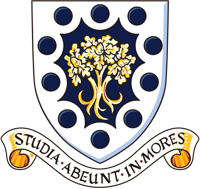Math Curriculum
The HD Secondary curriculum is based on the Chinese Mathematics standards, and integrates western pedagogy, to enhance students’ love and mastery of the subject. The maths curriculum ensures students’ depth and breadth of the different subject areas, from geometry to algebra. Through bilingual teaching in years 6 to 8, we aim to give students a solid foundation that supports with their transition to the international math curriculum that is taught in our senior school.
Within some academic year groups, students are set according to ability – this allows the teachers to ensure that all students’ needs are met. Students who have an interest in maths also have many opportunities to participate in different competitions - these include the AMC, American Math League and Canadian Waterloo Maths Contest.

Science
There are three science subjects that are taught in the secondary school - Physics, Chemistry and Biology. The curriculum in the middle school is based on the Chinese Science curriculum and integrates aspects of the Singaporean, Oxford, and Cambridge curricula. The courses are taught by experienced bilingual and international teachers, who ensure students can grasp essential knowledge both in Chinese and English. The curriculum content supports students to progress to the international, IGCSE and A Level courses that are taught in later years.

Computer science
Students studying Computer Science at HD Ningbo Secondary School develop their understanding of the main principles of problem-solving using computers. They apply their understanding to develop computer-based solutions to problems using algorithms and a high-level programming language. They also develop a range of technical skills, as well as the ability to effectively test and evaluate computing solutions. Studying Computer Science helps learners appreciate current and emerging computing technologies, the benefits of their use and recognize their potential risks.
The study of Computer Science helps students develop an interest in Computing and gain confidence in computational thinking. It is an ideal foundation for further study at university, and the transferrable skills learnt are useful in other areas of study, and in everyday life.




